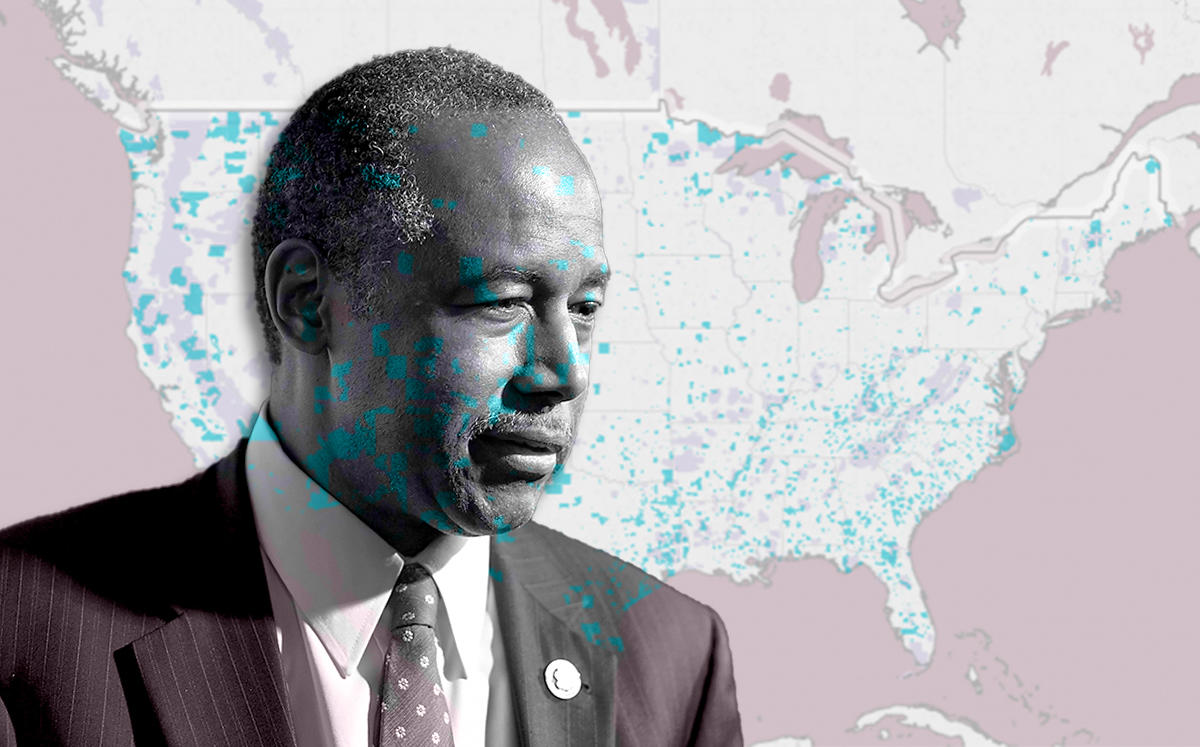Trending
Ben Carson says HUD will give preference to developers who build affordable housing in Opportunity Zones
In an interview with The Real Deal, Carson also said he's now open to staying on as HUD secretary if President Trump wins a second term

Housing and Urban Development Secretary Ben Carson said the agency will give preference to developers and investors who build affordable housing in federal Opportunity Zones when it comes to certain grants.
In an interview with The Real Deal on Tuesday, Carson said HUD will give added weight to proposed affordable developments in the Opportunity Zones, looking to make that construction a more competitive option for builders. But he acknowledged the agency could not mandate the construction of affordable housing in the 8,7000 designated Opportunity Zones nationwide.
“If you are doing a project within an Opportunity Zone and you are applying for one of our grants, you get some preference,” Carson said during the interview. “So that along with the tax advantages, will drive people to look at those (areas). We are also offering very specific technical assistance to help them coordinate their efforts.”
The preference point system marks one of the first Opportunity Zones initiatives by HUD, and could have a significant impact toward pushing developers to build affordable housing in Opportunity Zones.
The Opportunity Zones program, passed as part of President Trump’s 2017 tax overhaul, gives investors and developers the ability to forgo and defer paying some capital gains taxes if they invest in any of the designated zones. Investors have set up massive funds but most are waiting to deploy capital until more regulations are released from the U.S. Treasury Department and the IRS. The latest round of guidance has been expected in the following weeks, and Carson confirmed that.
The Opportunity Zones program, which has been popular with developers and investors, does not require affordable housing construction. That reality has created skepticism that the program will just benefit the wealthy developers for projects that would have been built anyway.
Until recently, HUD had largely been quiet on how the agency would fold Opportunity Zones into its mission.
Last month, Carson announced the Federal Housing Administration’s low-income housing tax credit financing pilot program was expanded to incorporate Opportunity Zones projects.
Carson told TRD that his agency is also working with other federal agencies and programs to coordinate efforts, so that developers can combine the Opportunity Zone tax benefits with other tax credits, such as the New Market Tax Credit.
“All of these things can really be utilized in conjunction with those” Opportunity Zones investments, Carson said.
Carson also reaffirmed HUD’s controversial initiative, announced in September, to encourage cities to change their zoning regulations in order to build affordable housing.
“We are making it known to people that we are going to look more favorably upon their applications if they are willing to work on removing the barriers. We are talking zoning restrictions,” Carson said.
The former Republican presidential candidate, who last month was quoted saying he would likely return to the private sector after completing his four-year term as secretary, now said he is open to staying on for a second term, should President Trump run and win in 2020.
“My preference would be to go back to the private sector, that would be my preference now,” he said. But there are some very important things that need to be done.”




